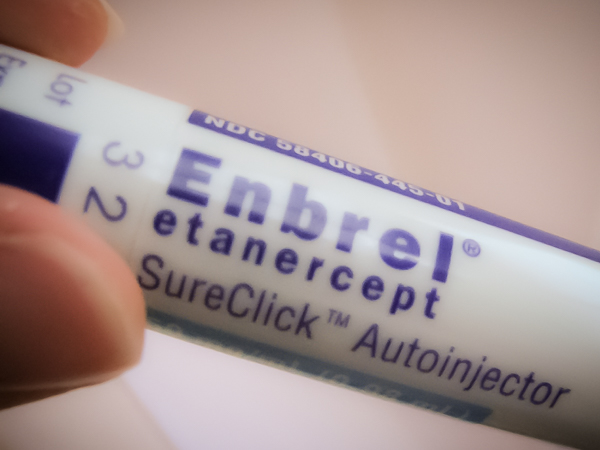
Faced with soaring prescription costs, the B.C. government is looking for alternatives to expensive biologic drugs, not long ago hailed as revolutionary.
Used to treat debilitating joint disorders like rheumatoid arthritis, biologics were “game-changers” when they were first invented 15 to 20 years ago, said Dr. Jason Kur, president of the B.C. Society of Rheumatologists.
Biologics are genetically-engineered proteins, developed using living cells. As such, they are far more complex — and costly — than drugs manufactured through a conventional chemical process.
According to documents obtained through an access to information request, B.C. PharmaCare spent a record $82.5 million in 2014 to treat the three most common forms of inflammatory arthritis using biologics. That’s more than 12 times the amount the province spent on these medications when they were first introduced in 2002.
Excerpt from an information note provided to B.C. Health Minister Terry Lake
Click annotation to see full document
With an annual cost of around $20,000 per patient, one drug alone — Infliximab — accounted for $51 million in spending in 2012-13: PharmaCare’s single largest drug expenditure that fiscal year.
Documents also show the number of patients receiving PharmaCare coverage for a biologic to treat one of the three most common forms of inflammatory arthritis grew more than tenfold, from 547 patients in 2002 to over 6,400 patients in 2014.
Cheryl Koehn understands the importance of biologics first-hand.
A former Olympic-calibre volleyball player, she was just 27 when she developed rheumatoid arthritis 27 years ago.
“Before these drugs, we basically were left at home to become disabled and die,” said Koehn, who now works as founding president of Arthritis Consumer Experts, a national organization offering science-based information to Canadians living with arthritis.
But PharmaCare administrators hope subsequent entry biologics (SEBs) will offer not only comparable patient results, but also huge savings to the province.
Biologics cannot be perfectly replicated, but SEBs — or “biosimilars” — have been shown to offer similar relief of patients’ symptoms. In other words, they are designed to be comparable, but not identical to the original biologic on which they are based. Importantly, they are also developed to be significantly less expensive.
Since Feb. 19, 2016, a biosimilar of Infliximab — Inflectra — has been available through PharmaCare, priced about a third lower than the original Infliximab. Inflectra is also listed in provincial drug coverage plans in Ontario and Quebec, and will be available in Manitoba in April.
Excerpt from B.C. PharmaCare’s February 2016 newsletter
Click annotation to see full document
Kur said he and his colleagues are “cautiously optimistic” about the arrival of biosimilars in B.C.
“We’re all quite aware these are some of the biggest costs driving drug expenditures,” he said, adding there are some lingering concerns.
Many of the original biologics have more than one or two decades’ worth of data to support their safety and efficacy, he said. “That’s not something that should be taken lightly.”
Still, Kur supports the B.C. government’s decision to have Inflectra prescribed to patients who have never before taken Infliximab. Long-term studies conducted in Europe strongly suggest the drug is just as safe and effective as the original biologic.
Koehn, too, agrees that SEBs offer an exciting opportunity, especially if the provincial government re-invests savings to expand coverage to other biologics and SEBs.
She also hopes the government might relax some of the eligibility criteria, which require patients to take less effective medication before being considered for a biologic.
Only biologics and SEBs, said Koehn, can restore up to 50, 70 or even 90 per cent of a patient’s health.
“It’s like saying to a cancer patient, ‘We’ll get rid of 20 per cent of your tumour and tough luck with the rest,’” said Koehn. “You don’t say that to cancer patients, so why should you say that to people with auto-immune arthritis?”
Additional information and ATI requests
B.C. Ministry of Health – Information note and additional information
ATI request – Federal government – Public Safety Canada
ATI request – Provincial government – Ontario Ministry of Community Safety and Correctional Services
